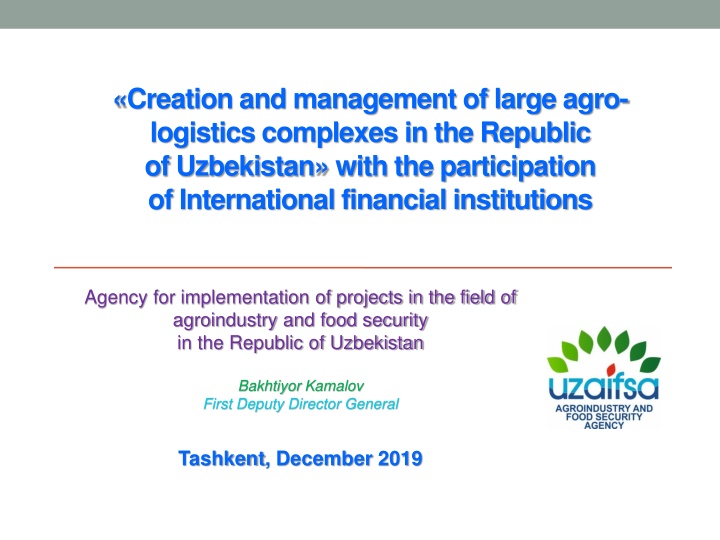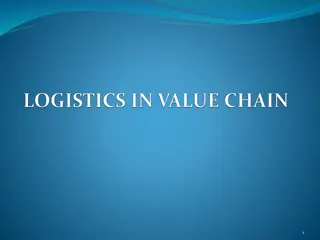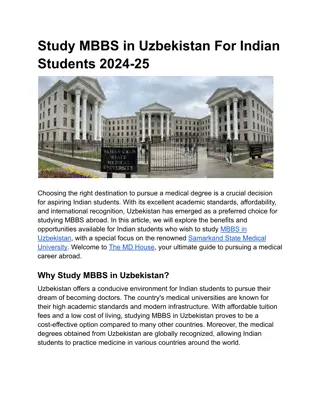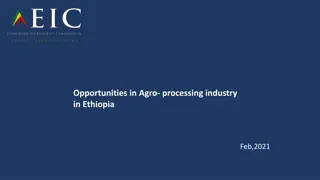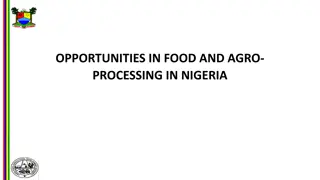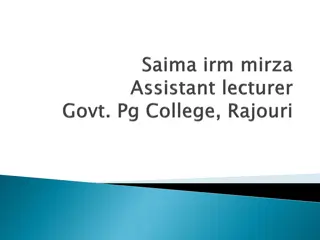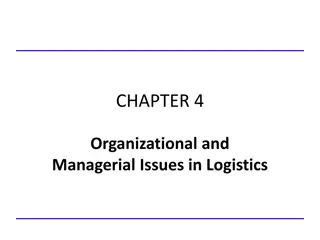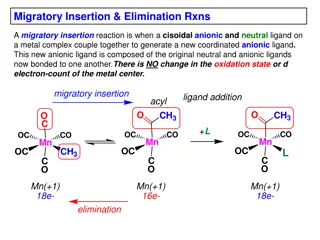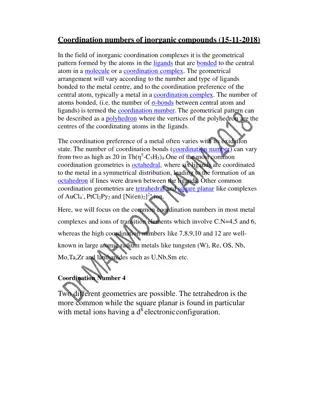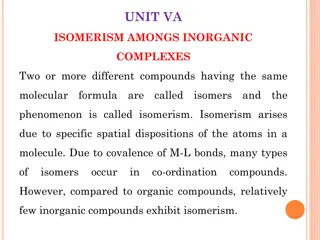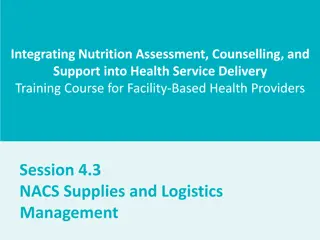Implementation of Large Agro-Logistics Complexes in Uzbekistan
The Republic of Uzbekistan is focusing on creating and managing large agro-logistics complexes to enhance food security and agribusiness development. Government programs and international financial institutions are instrumental in funding and implementing these projects, aiming to increase agricultural product processing capacity, introduce modern technologies, and boost investment attractiveness in the sector. Plans include establishing eight complexes across various regions, with the Asian Development Bank participating in several projects to support infrastructure development in horticulture.
Download Presentation

Please find below an Image/Link to download the presentation.
The content on the website is provided AS IS for your information and personal use only. It may not be sold, licensed, or shared on other websites without obtaining consent from the author.If you encounter any issues during the download, it is possible that the publisher has removed the file from their server.
You are allowed to download the files provided on this website for personal or commercial use, subject to the condition that they are used lawfully. All files are the property of their respective owners.
The content on the website is provided AS IS for your information and personal use only. It may not be sold, licensed, or shared on other websites without obtaining consent from the author.
E N D
Presentation Transcript
Creation and management of large agro- logistics complexes in the Republic of Uzbekistan with the participation of International financial institutions Agency for implementation of projects in the field of agroindustry and food security in the Republic of Uzbekistan Bakhtiyor Kamalov First Deputy Director General Tashkent, December 2019
2 Government program Decree of the President of the Republic of Uzbekistan On additional measures for processing of agricultural products and the further development of the food industry ( PP-4406 dated 29.09.2019) The decree provides: further increase the capacity of the Republic of Uzbekistan in the sphere of processing of agricultural products; development of production, processing, standardization, consulting and marketing services on agribusiness, with the creation of agro logistic complexes; organization of intensive agriculture system based on scientific researches; further development of food industry; increase investment attractiveness of the industry; introduction of modern technologies in the agricultural sector.
3 PLAN OF PRACTICAL MEASURES FOR ORGANIZING LARGE AGRO LOGISTIC COMPLEXES BY ATTRACTING CREDIT LINES OF INTERNATIONAL FINANCIAL INSTITUTIONS It is planned to organize 8 large agro logistic complexes with a total capacity of 3 million tons on an area of 145 hectares for a total of 367 million dollars in 8 regions of the Republic: 1) Jomboy district of Samarkand region in the amount of $ 53.3 million on an area f 22 hectares with a capacity of 492 thousand tons; 2) Andijan district of Andijan region in the amount of $ 45.5 million on an area of 18 hectares with a capacity of 410 thousand tons; 3) Urtachirchik district of Tashkent region in the amount of $ 88.2 million on an area of 30 hectares with a capacity of 760 thousand tons; 4) Fergana district of Fergana region in the amount of $ 40.0 million on an area of 15 hectares with a capacity of 300 thousand tons; 5) Sharof Rashidov district of Djizzakh region in the amount of $ 40.0 million on an area of 15 hectares with a capacity of 300 thousand tons; 6) Termez district of Surkhandarya region in the amount of $ 40.0 million on an area of 20 hectares with a capacity of 300 thousand tons; 7) Kogon district of Bukhara region in the amount of $ 30.0 million on an area of 15 hectares with a capacity of 200 thousand tons; 8) Urgench district of Khorezm region in the amount of $ 30.0 million on an area of 10 hectares with a capacity of 200 thousand tons;
4 Participation of ADB in realization of projects The Agency reached an agreement on the implementation of a project with the participation of ADB for a total amount of $ 197 million for the creation of three of the eight above-mentioned agrologistic complexes in Samarkand, Andijan and Tashkent regions. On September 11, 2019 Resolution of the Cabinet of Ministers of the Republic of Uzbekistan PKM 761 On measures for the implementation of the project development of the value chain infrastructure in the horticulture sector with participation of ADB. was adopted
5 How ALCs will improve the value chain in the horticulture sector Improving the efficiency of stakeholders of value chain with ALC Current situation Limited volume of exports Limited supply during off-season Producers - often the weakest link in the food distribution chain Lack of access to market information (products, prices and capacity) Limited ability to conditions during concluding a contract (manufacturers with their own initiative and small-scale production can not sell because due to distances, lack of equipment, they always need to sell from the farm; perishable and short shelf life products) Inefficiency in the value chain often leads to lower farm prices and higher prices for consumers (large losses due to the lack of timely transportation and storage) ALCs will be mega-clusters of horticulture, as they will become the main connecting centers for all fruit and vegetable farms and clusters of horticulture. A refrigeration facility of 3 million tons per year will help smooth out seasonal fluctuations, supply and price stability throughout the year. Products are ready for export and domestic distribution, since the ALC is a singlewindow for sorting, processing, packaging, certification and customs clearance, etc.. ALCs are located near the railway and road, which will significantly reduce transportation costs. Improving access to market information will guide production and allow for more favorable conditions. The efficiency created by the wholesale market will benefit both producers and consumers (reduction of losses with the help of appropriate trading and storage facilities, increasing the efficiency of time costs). For wholesalers and exporters - higher premiums on prices both in the domestic and international markets, due to the trust in sorted and certified products. For retailers - a varied and safe offer of fresh products - stability of purchase prices - proximity to the city, their business - good services in the market: parking, delivery, picking. achieve favorable Result: there is no incentive for either manufacturers or suppliers. Result: increased incentive for commercialization for all market participants.
6 Creation of ALC in Andijan region Andijan ALC includes: 12.6 thousand m2 of retail space, evenly divided into zones of wholesale and small sales, with an annual throughput of up to 214 thousand tons; 15 thousand m3 of refrigerated warehouses; with an annual capacity of up to 256 thousand tons; 12 processing lines with an approximate annual throughput of 19.6 thousand tons; Providing the basis for the current and future expansion of the ALC while increasing the volume of fruits and vegetables and / or for trade, storage and processing of alternative food products. Andijan ALC will be located in the Andijan district, at some distance from the city of Andijan, but with good communication with the city, on the national highway 4 112 373 (Tashkent - Ferghana Valley), opposite the airport of Andijan city. Right in the center of the main zones of fruit and vegetable production of Andijan region Andijan, Asaka, Jalalkuduk, Pakhtaabad and Shakhrikhan districts. Conveniently located for communication with neighboring Fergana and Namangan regions and access to export markets. The total area of the allocated land is 42 hectares, of which 18 hectares will be built up under the project, and the remaining part is reserved for further expansion. (Note: the exact area will be determined during a detailed survey with measurements based on working documentation).
7 Project of ALC in Andijan region
8 Creation of ALTS in Samarkand region : 15 thousand m2 of retail space, evenly divided into zones of wholesale and small sales, with an annual throughput of up to 256 thousand tons; 18 thousand m3 of refrigerated warehouses; with an annual capacity of up to 310 thousand tons; 15 processing lines with an approximate annual throughput of 24 thousand tons; Providing the basis for the current and future expansion of the ALC while increasing the volume of fruits and vegetables and / or for trade, storage and processing of alternative food products. It is located in the Jomboy district and has good communication with the city of Samarkand, near the M39 national highway connecting Samarkand with Tashkent, close to the airport of Samarkand. The location of the ALC in Jomboy will enable traders from the southern regions (Surkhandarya and Kashkadarya) to come to the ALC directly without stopping in Samarkand and not creating traffic congestion in it. Right in the center of the main zones of fruit and vegetable production of Samarkand region Bulungur, Jomboy, Samarkand, Taylok and Urgut districts. The total area of the allocated land is 42 hectares, of which 22 hectares will be built up under the project, and the remaining part is reserved for further expansion. (Note: the exact area will be determined during a detailed survey with measurements based on working documentation).
9 Project of ALC in Samarkand region
10 Services provided by ALC Farmers Associations, Wholesalers and Retailers Logistics and Transportation Catering, hotels Refrigerated storage and services Laboratory and Certification Customs / Free Trade Zone Supermarkets / Small Wholesale Stores Packaging Food processing Sector Support Programs and Training Restaurants, gas stations, consulting services, banks Importers and exporters
11 Income and benefits ALC income will consist of renting: equipment and premises for post-harvest processing of a number of fruit and vegetable products; refrigerated and freezer storage chambers leased on a daily or monthly basis; market retail space to wholesalers and small farmers; areas in the administrative building of the ALC, as well as fees for the entry of vehicles. Non-quantitative benefits from both ALCs include: reduction in post-harvest losses; increase in exports of fruit and vegetable products; increasing the efficiency of the value chain of fruit and vegetable products, including reducing operations when handling products and, accordingly, improving their quality; more transparent pricing information, as well as the formation and stabilization of prices for fruits and vegetables throughout the year, due to smoothing seasonal fluctuations; and the social and environmental benefits of reduced truck trade on roadsides. Andijan ALC will create more than 1,200 jobs with full employment and 450-550 temporary jobs during the three-year construction period. Samarkand ALC will create more than 1,300 jobs with full employment and 600-700 temporary jobs during the three-year construction period. To fill these jobs require both skilled and semi-skilled workers, and postharvest processing will create a significant number of jobs for women. Based on the estimated tax rate on net income, it is expected that annual tax revenues will be about $ 2.3 million from the Andijan ALC and about $ 2.7 million from the Samarkand ALC, in addition to various contributions to social funds.
12 Further perspectives According Decree of the President of the Republic of Uzbekistan dated September 29, 2019 PP-4406 is planned 5 more projects to create agro logistic centers. The total capacity of these agrologistic centers will be 1300 thousand tons, a total of $ 180 million., of them: 3 projects with participation of ADB According to a tentative business plan of ADB's for the country for 2020-2022 years, in 2020 it is planned to implement the project "Improvement of infrastructure to increase productivity in rural areas" with the participation of ADB. Within the framework of this project, it is planned to create three agrologstic centers totaling $ 120 million with a capacity of 900 thousand tons on an area of 50 hectares in the Ferghana, Jizzakh and Surkhandarya regions. 2 projects with the participation of the World Bank Agency together with the World Bank, is developing a project Agriculture modernization project . Within the framework of this project, it is planned to create two agrologistic centers totaling $ 60 million with a capacity of 400 thousand tons on an area of 25 hectares in the Bukhara and Khorezm regions. In general, the results of the implementation of the envisaged activities in the country will act modern agrologistic complexes, which in turn will give impetus to further development of export potential of the Republic of Uzbekistan and regional trade as a whole, including the enhanced capability of the economic corridor between Kazakhstan, Uzbekistan and Tajikistan.
THANK YOU FOR YOUR ATTENTION! www.uzaifsa.uz info@rra.uz (+998) 71 2412002 Tashkent, December 2019
